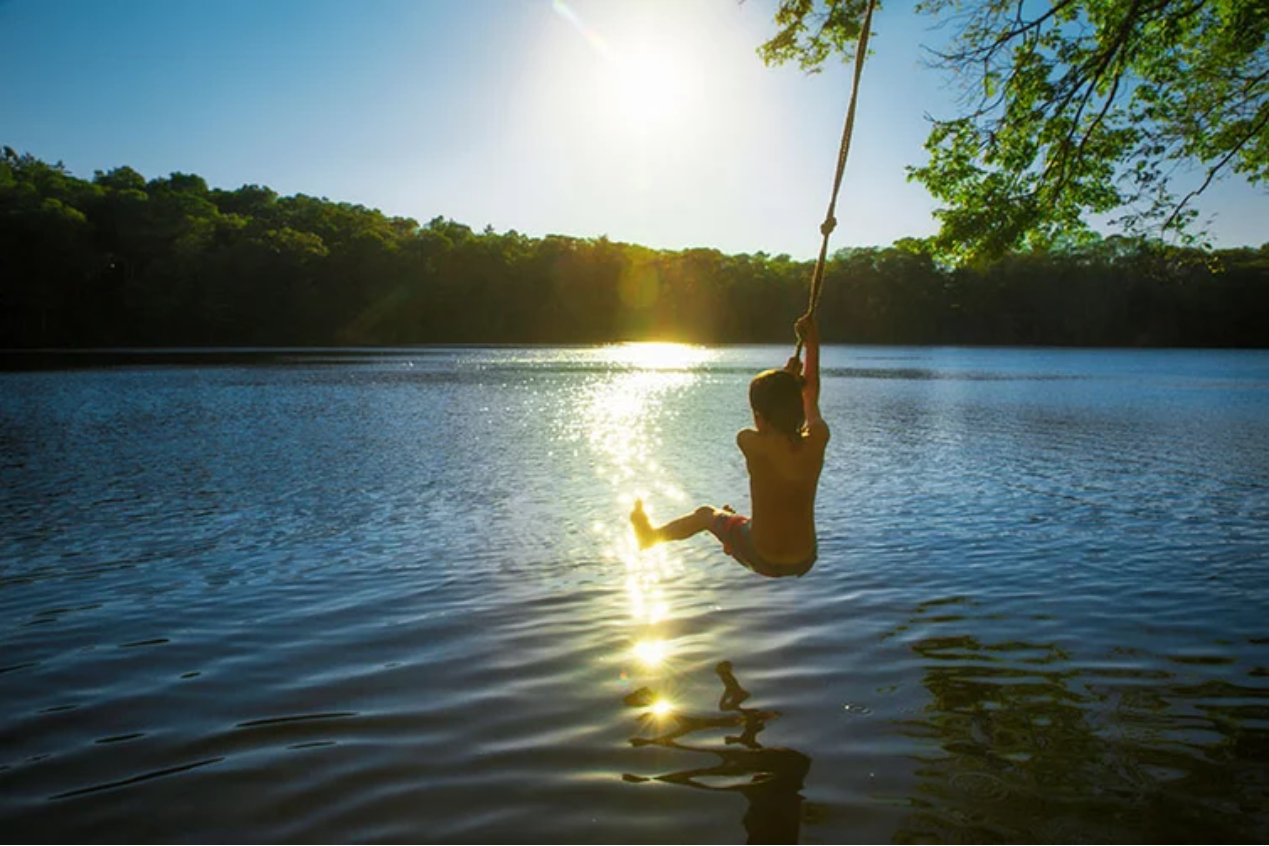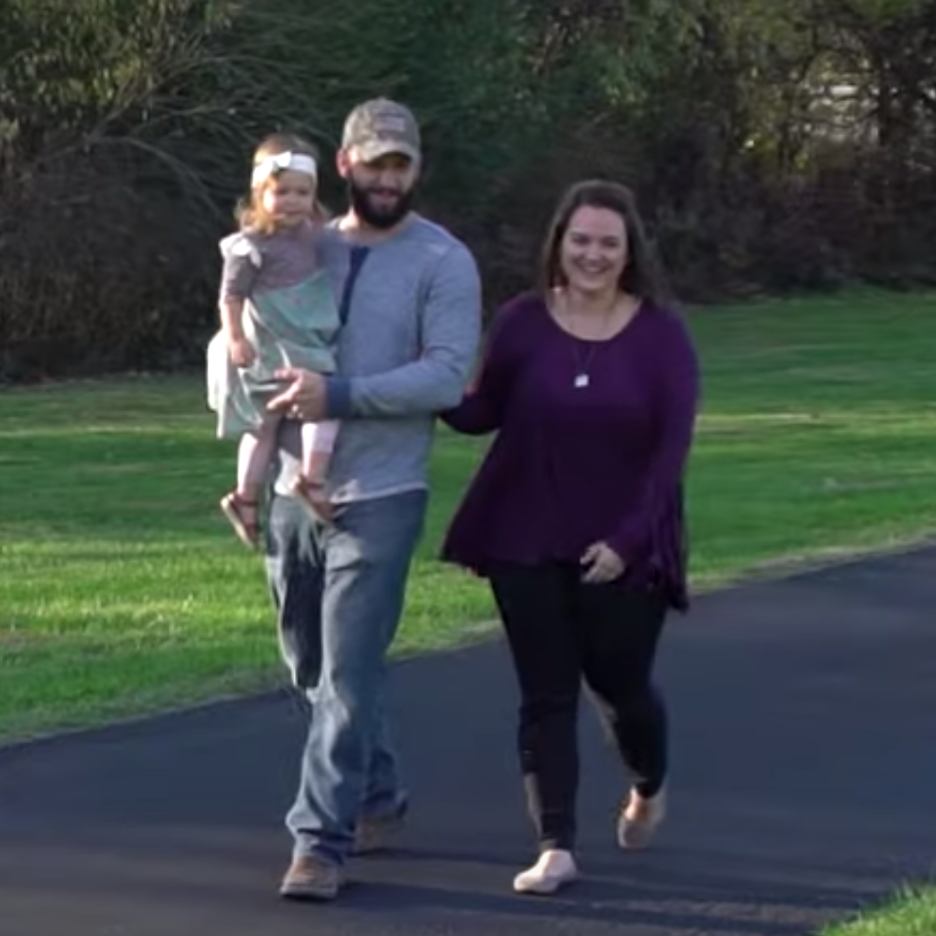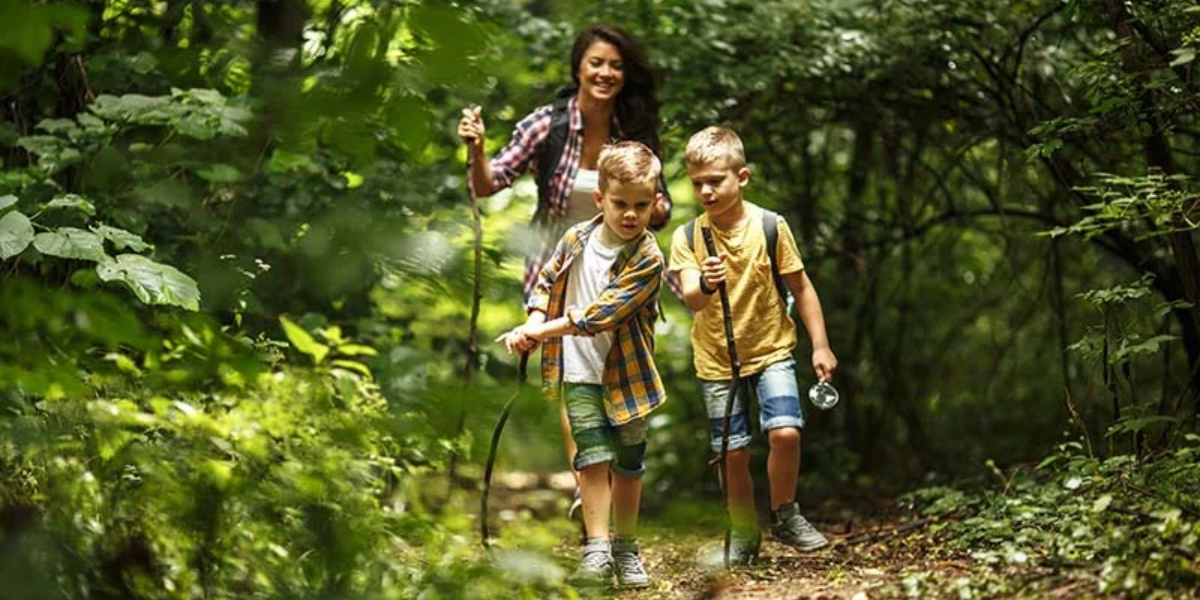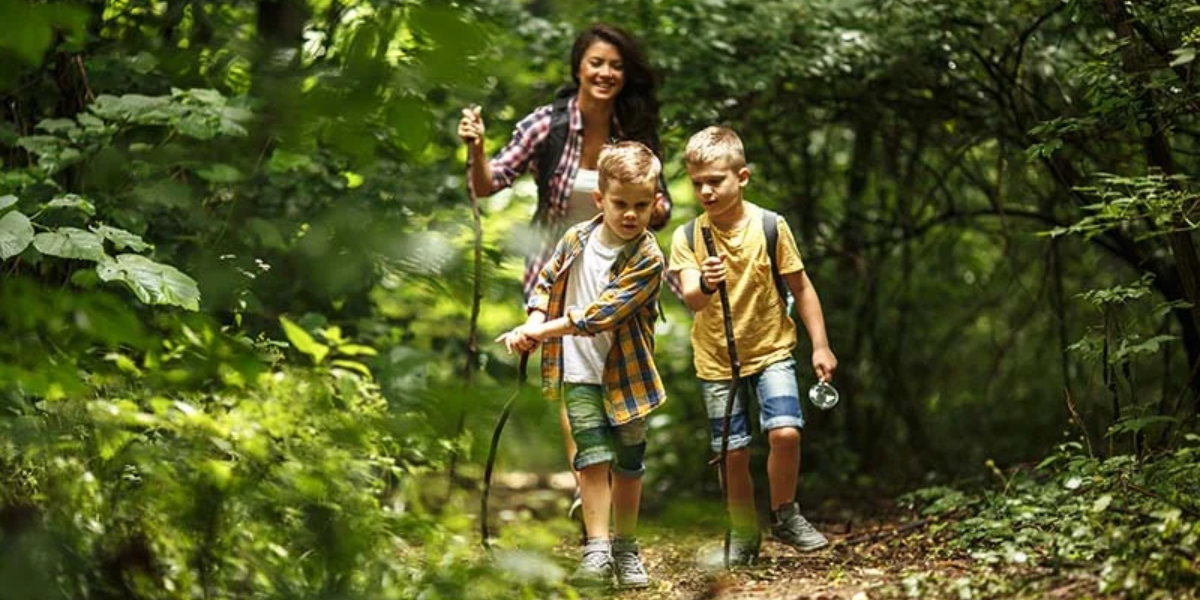
8 Tips to Keep You Safe This Summer
Summer fun is in full effect! For many people, summer means extra time for travel, swimming, and recreation. But injuries and accidents can turn summertime into bummer-time faster than you can say “popsicle sticks.”
From pool parties to road trips and from beach days to campouts, we’ve compiled tips to keep you safe from common summer hazards.
Be Safe in the Water
On a hot summer day, there’s nothing like a dip in the pool or lake. Water and summer go together like peanut butter and jelly! But for all its refreshment, water presents dangers as well. According to the Centers for Disease Control and Prevention (CDC), there are around 4,000 drowning fatalities each year; that’s an average of 11 per day nationwide. To avoid an emergency, follow these water-safety precautions:
- Never swim alone
- Utilize USCG-approved life jackets for pre-swimmers
- Teach children water survival techniques as soon as possible
- Designate one adult to supervise child swimmers at all times, then switch out verbally
- Avoid pool drains and other areas where it’s possible to get trapped underwater

"I was able to enjoy our new baby and never have to even worry about the bills."
- The Sokic Family
See What Others Are Saying
Be Safe in the Sun
According to the US Department of Health and Human Services, one out of every three Americans gets at least one sunburn each year. Although a sunburn isn’t what most would consider an immediate safety risk, over time the overexposure to UV rays increases a person’s risk of developing skin cancer. Each year 63,000 people are diagnosed with melanoma, the most serious kind of skin cancer. Take the following precautions to be safe in the sun:
- Use sunscreen with 50+ SPF protection, and reapply every 2 hours
- Wear a wide-brimmed hat and UPF shirt when playing in the sun
- Put up a portable tent or canopy when outside for long periods
- If sunburn occurs, apply aloe to the area and take ibuprofen or aspirin as needed to reduce swelling
Be Safe in the Woods
Hiking and camping are great ways to enjoy nature during the summer. For many people, spending time in the great outdoors is a literal breath of fresh air! Of course, a sprained ankle or scraped elbow can put a damper on that feeling of serenity. An estimated 4,000-5,000 people suffer injuries while hiking, most due to falls or slips. Practice safety in the woods with these tips in mind:
- Leave your hiking itinerary with someone who’s not going along so they know where and when to call for help on your behalf if needed
- Gear up with good boots, socks, hats, and maybe even walking sticks
- Pack plenty of water, protein bars, and basic first aid supplies
- Stand back from ledges and take extra care on elevated trails
- Wear bug spray to prevent bug-related illnesses and diseases
- Do not drink stream water or eat unknown berries
- Practice fire safety around campsites: make a fire ring barrier, keep flammable items away, and have water nearby for extinguishing flames


Be Safe in Crowds
Heading to a theme park, concert, or sporting event this summer? Make sure that your kids know the importance of sticking together in a crowd. The US Department of Justice estimates that over 350,000 children get temporarily separated from their parents or guardians each year. To avoid this scare and remain safe in crowds, consider these tips:
- Make sure all kids know your phone number—for small children, write it inside their clothing or on a band-aid
- Wear bright clothing to make all family members easier to spot
- Pinpoint a safe meeting spot in case anyone gets separated
- Talk about strangers and safe people—help children develop the instincts to approach uniformed people or families if they need help
Be Safe at the Beach
A beach vacation can be full of fun and relaxation for the whole family. But there are also hazards to watch out for, including rip currents, lightning, and wildlife. In fact, lifeguards make around 80,000 rip current rescues annually, and beach activities are the second greatest cause of lightning fatalities. So, in addition to water and sun safety tips, keep the following recommendations in mind if you plan to head to the beach this summer:
- Always swim near a lifeguard; their vantage point and rescue equipment could be very important in an emergency situation
- If a storm approaches, get away from the water and seek shelter in your car or a covered structure immediately
- If you feel a rip current, swim parallel to the shore in order get out of the strong seaward pull
- Keep a small bottle of vinegar with you to rinse off any jellyfish stings—hot water and hydrocortisone cream also help with treatment
Be Safe on the Road
Tunes up, windows down—summer road trips can be the best! But nothing detours a great road trip faster than a break down or accident. In order to keep your summer road trip headed in the right direction, the US Department of Transportation recommends the following summer safe-driving tips:
- Always wear seat belts and buckle young children in approved car seats
- Before leaving, check engine fluid levels, and check tires for proper tread
- Pack an emergency bag, including jumper cables, first aid kit, basic repair tools, tire pressure gauge, and work gloves
- Don’t drive drowsy; it’s better to take a break or switch drivers if you can
- Look twice before backing out of a driveway or parking spot, especially if children are around
Be Safe during Sports
Summers are great for a neighborhood game of basketball or a pickup ultimate frisbee tournament. Playing sports is an excellent way to get some exercise and build relationships. But there’s also reason to be careful while playing sports, especially during hot months. According to the CDC, there are over 67,000 heat-related emergency room visits and more than 9,000 hospitalizations from heat on average each year. To beat the heat while playing sports, consider the following precautions:
- Drink plenty of water, ideally an ounce per pound of body weight
- Pre-hydrate—drink water before heading outside to avoid dehydration
- Wear light, loose-fitting clothing
- Take a break from the heat during the hottest midday hours
- At the first sign of heat exhaustion (cramps, headache, dizziness), head indoors or submerge in cool water if possible

Melissa Richeson is a freelance writer and editor based in Central Florida. Her work has been featured in places like The Washington Post, Florida Today, Sunlight Press, BiggerPockets Wealth Magazine, WDW Magazine, and many other outlets. As a Medi-Share member, she shares regularly about her positive CCM experience over the past decade. Melissa can often be found in real life at the beach, or virtually on her freelance website.
Be Prepared for Accidents
No matter how many precautions we take, accidents may still occur on summer vacation. Rest assured, if someone in your family needs to visit a doctor while you’re out of town, Medi-Share can help you navigate your options for care.
Telehealth through MDLive
A few years ago, while we were out of state, one of my sons got a cut on his foot that seemed to be infected. Instead of trying to schedule with a doctor in an unfamiliar city, I utilized free telehealth services through MDLive. During our video call, the doctor was able to prescribe a topical antibiotic for us to pick up at the pharmacy around the corner. Before your summer vacation, it might be a good idea to familiarize yourself with the MDLive portal, which you can access via your Medi-Share Member Center online.
Network and non-network providers
Last summer, another one of my sons fractured his wrist at a bike park while we were three states away from home. I knew he needed an x-ray, so I pulled up in-network urgent care facilities on my phone via my Medi-Share Member Center. Thankfully, there was a network facility close by. We were in and out without paying a dime (since we had already reached our Annual Household Portion).
Whatever plans are on your summer agenda, we pray you enjoy good health, safety, and lots of fun!

